Kissinger Vs. 'The Most Dangerous Man In America'
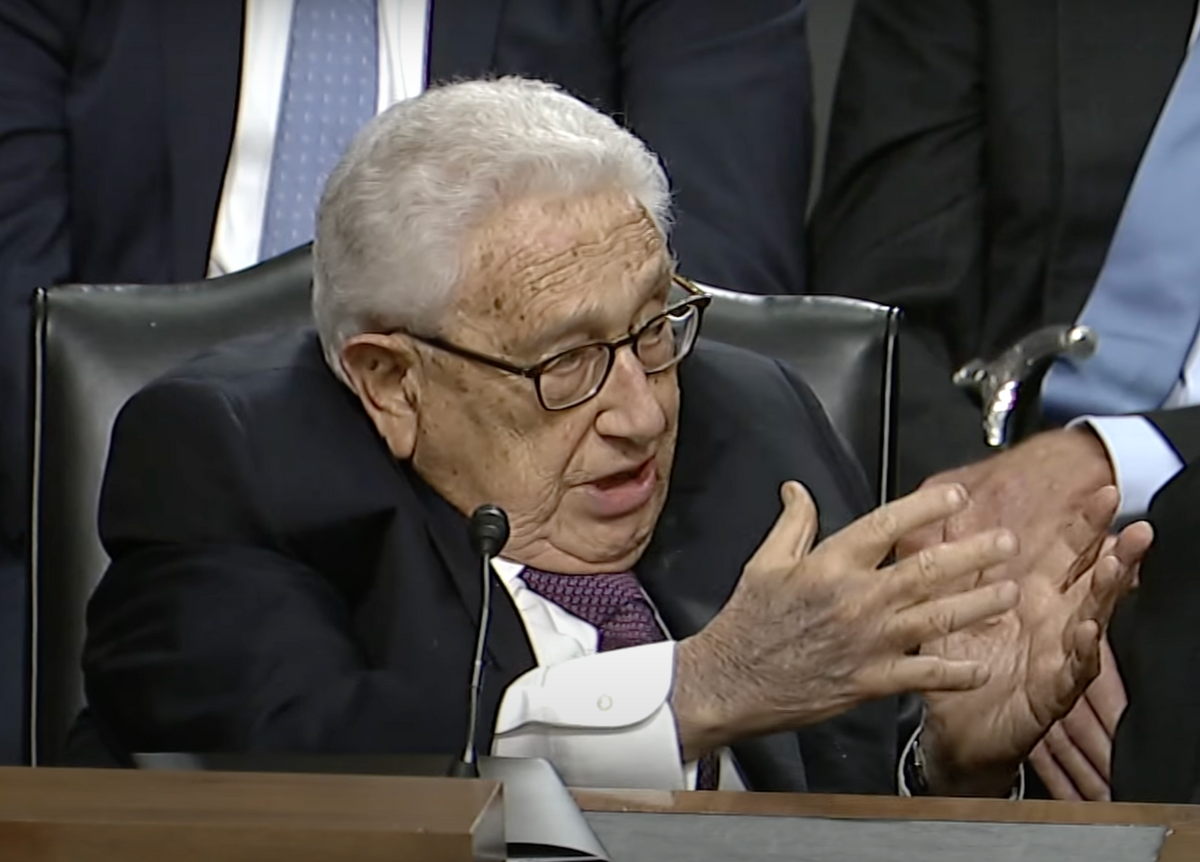
“Daniel Ellsberg is the most dangerous man in America. He must be stopped at all costs.” —Henry Kissinger
In 1970, before whistleblower Daniel Ellsberg shared copies of the Pentagon Papers with several newspapers in the United States, Ellsberg was invited by his friend Lloyd Shearer, who was the editor of Parade magazine, to attend a lunch with President Richard Nixon’s national security adviser Henry Kissinger.
Ellsberg recounted the lunch in his book, Secrets: A Memoir of Vietnam and the Pentagon Papers. Kissinger knew Ellsberg from his work at the RAND Corporation, and what Ellsberg recounted is vital to understanding the festering and unrepentant diplomat as the world marks his 100th birthday.
The contrast between the two could not be more stark. Ellsberg has spent the past 50-plus years constantly atoning for the part he played in the Vietnam War while Kissinger has shirked accountability for the vast amount of bloodshed that he enabled.
Kissinger's reaction to Ellsberg and the Pentagon Papers exposed more about who he was deep down than his philosophy or any advice he ever offered on U.S. foreign policy.
On a small patio, Kissinger was seated with General Alexander Haig, his aide. Kissinger said hello to Ellsberg and Shearer, and he told Shearer, “You know, I have learned more from Dan Ellsberg than from any other person—”
Ellsberg believed Kissinger would say “Vietnam,” but Kissinger said “—about bargaining.” That did not make a whole lot of sense to Ellsberg until he remembered the talks that he gave to Kissinger’s seminar at Harvard in 1959. They were part of a lecture series called “The Art of Coercion.” Since that was eleven years ago, Ellsberg responded, “You have a very good memory.”
With a “guttural drawl,” Kissinger added, “They were very good lectures.”
“Nice. Except that when I thought about it later, it made the hair on the back of my neck stand up,” Ellsberg shared. “The lectures I had given to his class had had to do with Hitler’s blackmail of Austria and Czechoslovakia in the late thirties that had allowed him to take over those countries just by threatening their destruction.”
“One of the talks was titled, “The Theory and Practice of Blackmail,” and the other was “The Political Use of Madness.” Hitler had deliberately cultivated among his adversaries the impression of his own irrational unpredictability.”
Ellsberg continued, “He couldn’t be counted on not to carry out a threat to do something crazy, mutually destructive. It worked for him, up to a point, because he was crazy, madly aggressive, and reckless. But after a certain point it brought the world down around him.”
“It wasn’t a tactic I was recommending for the United States, or anyone else, for that matter. Far from it. For someone to imitate Hitler in this respect was to cultivate madness and court disaster,” Ellsberg contended.
Kissinger's 'Chilling' Endorsement Of a Hitler Tactic
The U.S. under Nixon had invaded Cambodia in April. Ellsberg connected Kissinger’s compliment to leaks from unnamed Nixon officials who claimed a “major motive for the invasion was to convince the Soviets, the Chinese, and the North Vietnamese that [U.S.] decision making at the highest levels was unpredictable and that since we could do something so evidently erratic and crazy as to invade Cambodia at this stage of the war, they could not count on our reasonableness or prudence in the crisis.”
“It was chilling to realize that the memory of Hitler’s tactic, as such, was in the mind of the top White House adviser three months after Cambodia.”
The prestige media do not typically think of a man who considered a tactic employed by Adolf Hitler to be useful when celebrating Kissinger. But Ellsberg's anecdote illustrates how Kissinger has always been a malodorous wraith whose existence has reminded the world of all the death and destruction that the U.S. government has wrought in the past fifty to sixty years.
To mark the odious milestone—Kissinger's 100th birthday, Nick Turse, a contributing writer for The Intercept, reported on “an exclusive archive of formerly classified U.S. military documents” that come from the “files of a secret Pentagon task force that investigated war crimes during the 1970s, inspector generals’ inquiries buried amid thousands of pages of unrelated documents, and other materials discovered during hundreds of hours of research at the U.S. National Archives."
In December 1970, Kissinger passed on the command to bomb Cambodia to General Alexander Haig, which he had received from Nixon. “It’s an order, it’s to be done. Anything that flies on anything that moves. You got that?”
It is estimated that at least 150,000 civilians were killed in the attacks that Kissinger ordered, and the secret operations were deliberately hidden from the American people through a "conspiracy of cover stories, coded messages, and a dual bookkeeping system that logged airstrikes in Cambodia as occurring in South Vietnam.”

Greg Grandin, the author of “Kissinger’s Shadow: The Long Reach of America’s Most Controversial Statesman,” believes that the “blood of at least 3 million people” is on Kissinger’s aged and pale hands.
“As Kissinger dated starlets, won coveted awards, and rubbed shoulders with billionaires at black-tie White House dinners, Hamptons galas, and other invitation-only soirées, survivors of the U.S. war in Cambodia were left to grapple with loss, trauma, and unanswered questions,” Turse wrote. “They did so largely alone and invisible to the wider world, including to Americans whose leaders had upended their lives.”
The U.S. conducted raids with a B-52 bomber that were part of Operation MENU. They had the following codenames—BREAKFAST, LUNCH, SNACK, DINNER, DESSERT, and SUPPER. The attacks occurred between March 18, 1969, and May 26, 1970, but according to Turse, “Kissinger approved each one of the 3,875 sorties."
Turse interviewed two survivors when he visited Cambodia in 2010:
One morning, at the end of a busted dirt and gravel road near the Vietnamese border, I found Vuth Than, 78 years old at the time, with a shorn head of bristly gray hair and a mouth stained red with juice from betel nut, a natural stimulant popular in Southeast Asia.
Both Vuth and her sister, 72-year-old Vuth Thang, broke down as soon as I explained the purpose of my reporting. They were away from their home in the village of Por when a B-52 strike wiped out 17 members of their family. “I lost my mother, father, sisters, brothers, everyone,” Vuth Than told me, tears streaming down her cheeks. “It was so terrible. Everything was completely destroyed.”
Taking Offense When Called Out For Perpetrating War Crimes
Any time that Kissinger has been confronted over his role in committing such heinous acts, he has dodged the questions. He was asked at an event at the LBJ Library in 2016 what he thought of people who call him a war criminal.
“I think the word ‘war criminal’ should not be thrown around in the domestic debate. It’s a shameful — it’s a reflection on the people who use it,” Kissinger answered.
Yet what is truly shameful is how Kissinger has had half of a century to reckon with the carnage he unleashed. He apparently remains at peace with dying as an irredeemable and soulless mass of flesh.
Elites may wheel him out at a few galas around his birthday, but certainly, journalists and historians will continue to expose him as a villain after he finally croaks.
Ellsberg attended a conference at the Massachusetts Institute of Technology (MIT) in early 1971, where Kissinger gave a talk. He asked Kissinger directly, “What is your best estimate of the number of Indochinese that we will kill, pursuing your policy in the next twelve months?”
“He was completely and obviously stunned,” Ellsberg wrote in his book, Secrets. “This was startling to the audience because it was the first time he’d shown any break in his composure at all. He lowered his head, frowned, and half turned away from the audience. He turned back, gave me a very penetrating look with narrowed eyes…and said, ‘That is very cleverly worded question…I answer even if I don’t answer.”
“I’m not trying to be clever. That is a very fundamental issue,” Ellsberg replied. “Can you give an answer?”
Kissinger suggested that Ellsberg was accusing the Nixon administration of a racist policy. That was not the point that Ellsberg was trying to make. So Ellsberg asked the question yet again.
“What are your alternatives?” Kissinger shot back.
“Dr. Kissinger, I know the language of alternatives and options very well, and that has nothing to do with this question. I’m asking you for an estimate of the consequences of your own policy in the next twelve months, if you know them. Do you have an estimate or not?”
The student moderator ended the event, ensuring that Kissinger did not have to answer Ellsberg’s question. The U.S. military-backed Army of the Republic of Vietnam (ARVN) invaded Laos the following day.
Later, on June 17, 1971, days after the New York Times published their first story on the Pentagon Papers, Kissinger told Nixon and his inner circle that Ellsberg had called him a “murderer.”
'We've Got To Get Him'
Kissinger dubbed Ellsberg the “most dangerous man in America” because he was afraid that Ellsberg might have shared some documents with a U.S. senator that could expose secret operations in Cambodia. Certainly, Kissinger knew Ellsberg was familiar with the general strategy.
Ellsberg had met with Kissinger at the end of August 1970 in his office at San Clemente. As recounted in Ellsberg’s memoir, Kissinger was asked if had read the Pentagon Papers. Kissinger said he had not, even though he had access to the study. And when Ellsberg told Nixon’s national security adviser that he should, Kissinger replied, “But do we really have anything to learn from this study?”
“Well, I certainly do think so. It’s twenty years of history, and there’s a great deal to be learned from it,” Ellsberg argued.
“But after all, we make decisions differently now,” Kissinger insisted.
To which, Ellsberg countered, “Cambodia didn’t look all that different.”
Ellsberg made Kissinger squirm because Kissinger recognized he could not easily dismiss Ellsberg, as he had with others who objected to war-making. That was because Ellsberg, like Kissinger, had a security clearance, and Ellsberg read documents that Kissinger would not read or deliberately ignored.
On June 30, 1971, as the Supreme Court allowed the publication of the Pentagon Papers by the news media, Nixon, Kissinger, and his team contemplated extralegal measures to discredit and neutralize Ellsberg.
“Don’t you agree that we have to pursue the Ellsberg case now?” Nixon cried.
“We’ve got to get him,” added Kissinger.
Nixon fumed, “Try him in the press. Try him in the press. Everything, John [Mitchell], that there is on the investigation, get it out, leak it out. We want to destroy him in the press.”
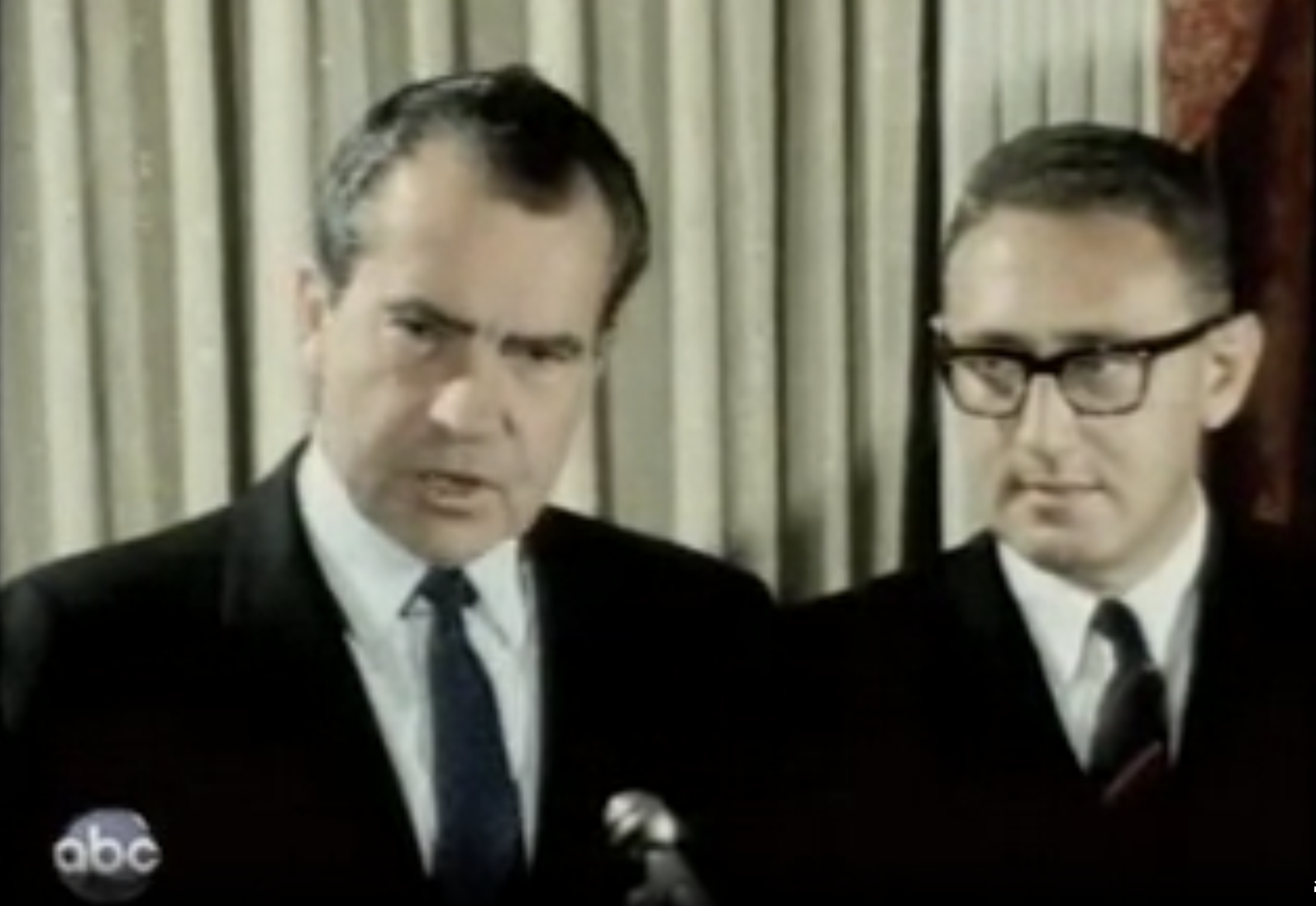
Nearly a month later, Kissinger advocated that once the administration had “broken the war in Vietnam” (Nixon was promising to withdraw a hundred thousand U.S. troops), that then the White House could say, “this son-of-a-bitch nearly blew it.” They could blame Ellsberg for jeopardizing plans to supposedly wind down the Vietnam War.
“Then we have, then we’re in strong shape—then no one will give a damn about war crimes,” Kissinger declared. And he added, “Because he is a despicable bastard.”
The Vietnam War did not end until 1975. Just as Nixon convinced the South Vietnamese to abandon peace talks in 1968 to help him win election, Nixon and Kissinger kept the war going to ensure that the fall of Saigon and collapse of the South Vietnamese regime did not unfold while Nixon was campaigning for re-election.
It was Kissinger, who encouraged acts that targeted Ellsberg, like the break-in of Ellsberg’s psychiatrist’s office by the men who became known as the White House Plumbers.
In Inside the Pentagon Papers, the book details how White House counsel John Ehrlichmann maintained that Kissinger “fanned Richard Nixon’s flame white hot.” White House Chief of Staff Bob Haldeman claimed, according to Kissinger, that Ellsberg had “weird sexual habits, used drugs, and enjoyed helicopter flights in which he would take potshots at the Vietnamese below.”
Haldeman found the suggestions were “beyond belief,” but they probably stemmed from Kissinger’s rage. According to Chuck Colson, who became known as Nixon’s “hatchet man,” the Nixon’s national security adviser had never been as angry as he was when the New York Times published their second installment of the Pentagon Papers.
Supporting Any Act But The Use Of Gas Chambers
Returning to Lloyd Shearer’s lunch with Kissinger that Ellsberg attended, Shearer had been invited to discuss Kissinger’s “sex life and how it was being presented in the media.” At the time, as Ellsberg noted in his memoir, Shearer was known for running stories about “Kissinger’s bachelor life with Jill St. John and other starlets.” And Kissinger did not want to talk about his relations with various women with Ellsberg so Ellsberg was encouraged to talk with Alexander Haig until Kissinger was done telling Shearer how to spin gossip about him.
“On the drive back to Santa Monica, Lloyd told me about his conversation with Kissinger. He had asked him one question that I’d suggested: Could he imagine any circumstances under which he would leave his position and oppose the president’s policy?” Ellsberg recalled. “Kissinger’s first answer was no, none at all. But when Lloyd pressed him, he said, ‘Well, I suppose, if there were plans for gas chambers…’”
Ellsberg recognized that nuclear war plans would not count, and added, “[F]or Henry Kissinger there is exactly one crime against humanity that he can recognize as such, and it’s happened already, it’s in the past. It was done by Germans, against Jews. That’s the only political act he can conceive as being unquestionably immoral.”
As Ellsberg recalled, Shearer was “shocked.” He thought that was “pretty harsh.” Ellsberg told him he really believed that, and he did not think it only applied only to high-ranking officials like Kissinger.
The memoir written by Ellsberg was compiled before a shocking tape recording of Kissinger from 1973 was shared widely in 2010. Kissinger was heard telling Nixon that helping Soviet Jews flee oppression was not an "objective of American foreign policy."
“And if they put Jews into gas chambers in the Soviet Union,” Kissinger added, “it is not an American concern. Maybe a humanitarian concern.”
This is who presidents, prime ministers, diplomats, and foreign policymakers revere. He is America's Baron Harkonnen. Few men will ever represent the grotesqueness of U.S. empire as well as Kissinger did while he slinked around the Earth.

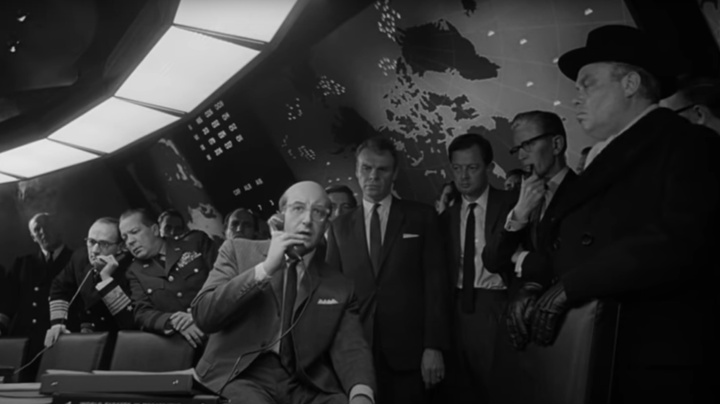
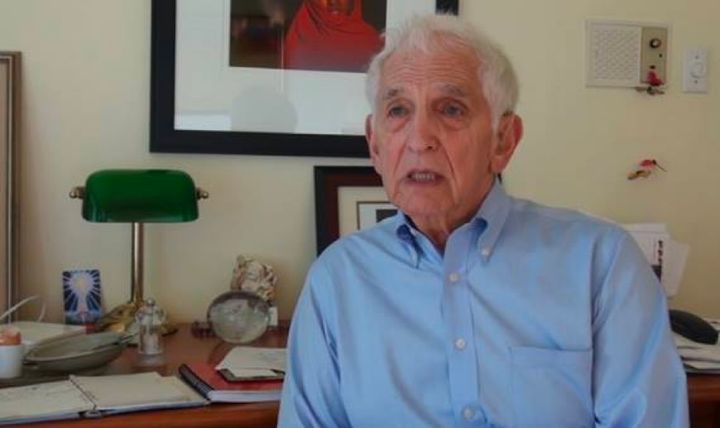
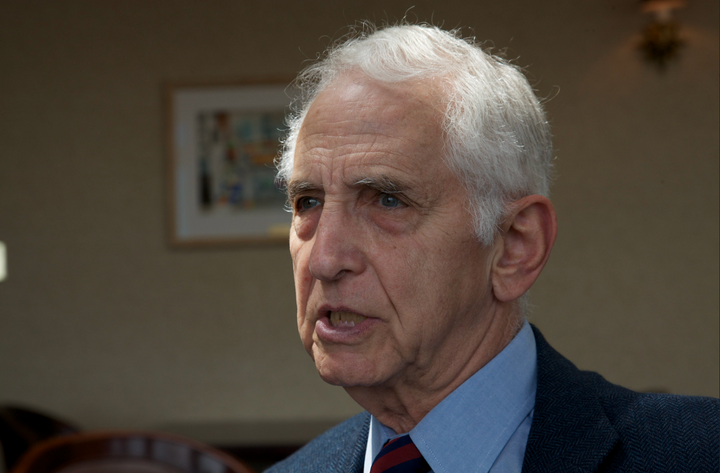
Comments ()